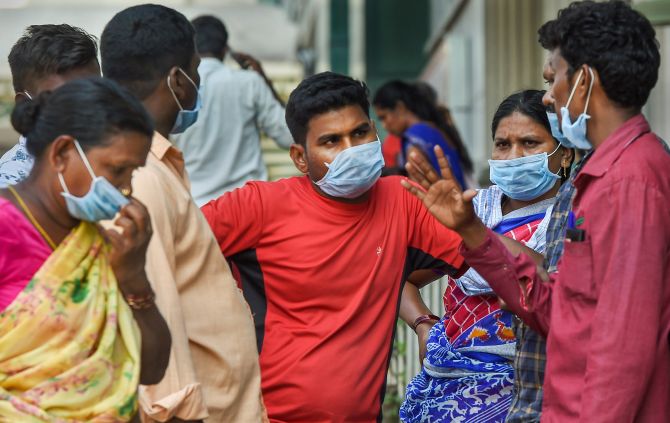High rate of asymptomatic COVID-19 cases good thing for society: Expert
August 11, 2020 13:47

A high-rate of asymptomatic COVID-19 cases is a "good thing" for the society and could play a role in the ending of the pandemic, according to a researcher.
In the last seven months, the COVID-19 pandemic has infected over 20 million people globally while it has claimed more than 700,000 lives, as per the Johns Hopkins University.
The research by Monica Gandhi, an infectious-disease specialist at the University of California at San Francisco, is based on asymptomatic cases, which form a large part of the infection history, according to The Washington Post.
"A high rate of asymptomatic infection is a good thing. It is a good thing for the individual and a good thing for society," Gandhi was quoted as saying.
The COVID-19 pandemic has thrown up several clues -- the uneven transmission in various parts of the world and mostly mild impact on children. According to the United States Centres for Disease Control and Prevention last month, 40 per cent of people infected with the virus are asymptomatic.
These developments have allowed scientists to look into the role of the receptor cells, which the virus uses to infiltrate the body and to get a better understanding of the role that age and genetics might play. Others are researching about face masks and whether they may filter out enough virus so that those wearing them had mild cases or no symptoms.
When coronavirus first surfaced in December last year, health authorities labelled it a "novel" virus as it was the first time it was seen in humans who presumably had no immunity from the infection. However, this early and tentative evidence suggests that the assumption might have been incorrect.
One interesting hypothesis states that a part of the world's population may have partial protection due to "memory" T cells, a part of our immune system trained to recognise specific invaders. This may arise from cross-protection derived from standard childhood vaccinations, as per The Washington Post.
"This might potentially explain why some people seem to fend off the virus and may be less susceptible to becoming severely ill," National Institutes of Health Director Francis Collins was quoted as saying.
This could be far-reaching if such findings are validated on a population level.
-- ANI





 © 2024 Rediff.com -
© 2024 Rediff.com -